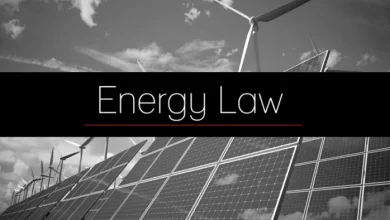Renewable Energy Startups in Nigeria: Legal Incentives and Barriers You Must Know
A practical guide for Nigerian entrepreneurs on the opportunities and hidden challenges in the renewable energy business.

Green energy is no longer a buzzword; it’s a reality powering Nigerian homes, farms, and businesses. From rooftop solar panels in Lagos estates to biofuel plants in Kaduna, renewable energy startups in Nigeria are on the rise. Investors see opportunity, entrepreneurs see potential, and communities see light where there was darkness.
But here’s the catch: for every tax holiday and grant available, there’s often a hidden regulation, policy flip-flop, or licensing delay waiting to trip you up. If you want your renewable energy startup in Nigeria to succeed, you need to understand not just the technical side, but also the legal terrain.
This guide breaks down the incentives that make the business attractive and the barriers you need to plan around.
Why the Rush to Renewables?
Nigeria’s electricity grid remains unreliable. Diesel prices are high, petrol supply is shaky, and downtime is too expensive for businesses. Add the global push for climate-friendly projects, and you’ll see why renewable energy startups in Nigeria are attracting investors, banks, and even state governments.
Still, passion and hype won’t pay the bills. Legal awareness is what separates a thriving renewable energy startup from one stuck in endless delays.
Legal Incentives That Support Renewable Energy Startups in Nigeria
-
Tax Breaks and Pioneer Status
Renewable energy startups in Nigeria can apply for the Pioneer Status Incentive (PSI), which grants up to five years of corporate tax holiday. That’s time to grow before the taxman comes knocking. -
Duty Waivers on Solar Equipment
Certain solar panels, inverters, and renewable equipment qualify for import duty waivers. This reduces costs, but not every component is covered, so always confirm before shipping. -
Access to Grants and Affordable Loans
The Rural Electrification Agency (REA), World Bank, and African Development Bank fund off-grid and mini-grid projects. Startups with rural impact stand a better chance of securing support. -
Climate Finance and Carbon Credits
Though still emerging in Nigeria, projects that cut emissions can qualify for carbon credits and international climate-linked investments. This creates new revenue streams for forward-looking startups.
Barriers That Hold Back Renewable Energy Startups in Nigeria
-
Licensing Delays
Most projects require approval from the Nigerian Electricity Regulatory Commission (NERC). Unfortunately, the process is often slow, taking months or even years. -
Import Bottlenecks
While some items enjoy waivers, others face heavy tariffs. Add the chaos of clearing goods at Nigerian ports, and startups often lose both money and momentum. -
Land and Community Disputes
Solar farms require land, which falls under the Land Use Act. Without proper consent and community engagement, projects risk endless disputes and hostility. -
Policy Uncertainty
Incentives today may vanish tomorrow. Nigeria has a history of shifting energy policies, creating investor hesitation. -
Standards and IP Issues
Products must meet the Standards Organisation of Nigeria (SON) requirements or risk seizure. Intellectual property rights are weakly enforced, making innovation protection a challenge.
How Renewable Energy Startups in Nigeria Can Stay Ahead
-
Do a Legal Health Check
Consult lawyers before importing, licensing, or acquiring land. Prevention is always cheaper than litigation. -
Apply Early for Incentives
Tax holidays and grants are limited-time opportunities. File applications on time to benefit. -
Win Communities Over
Engage host communities, provide value, and they’ll become partners rather than obstacles. -
Diversify Funding
Don’t rely only on government grants; tap into venture capital, private equity, and climate-linked finance. -
Prepare for Policy Shifts
Draft contracts with clauses that protect your project against sudden government changes.
Lessons from Nigeria’s Green Energy Market
-
Import and Tariff Challenges: Power for All (2020) reports that high VAT, import duties, and clearance delays drive up renewable energy costs.
-
Community Engagement: The REA has stressed that mini-grid success depends on proper community buy-in. Projects often fail when this is ignored.
-
Licensing Delays: Energy for Growth Hub (2021) highlights how NERC’s slow licensing discourages investors.
-
Policy Flip-Flops: IRENA (2022) warns that inconsistent incentives damage investor confidence in Nigeria’s renewable energy market.
Conclusion
Renewable energy startups in Nigeria are vital to solving the country’s power crisis. The opportunities are massive, but the legal pitfalls are just as real. If you grab the right incentives, engage communities, and plan for uncertainty, your startup can move beyond powering homes it can help shape Nigeria’s clean energy future.

